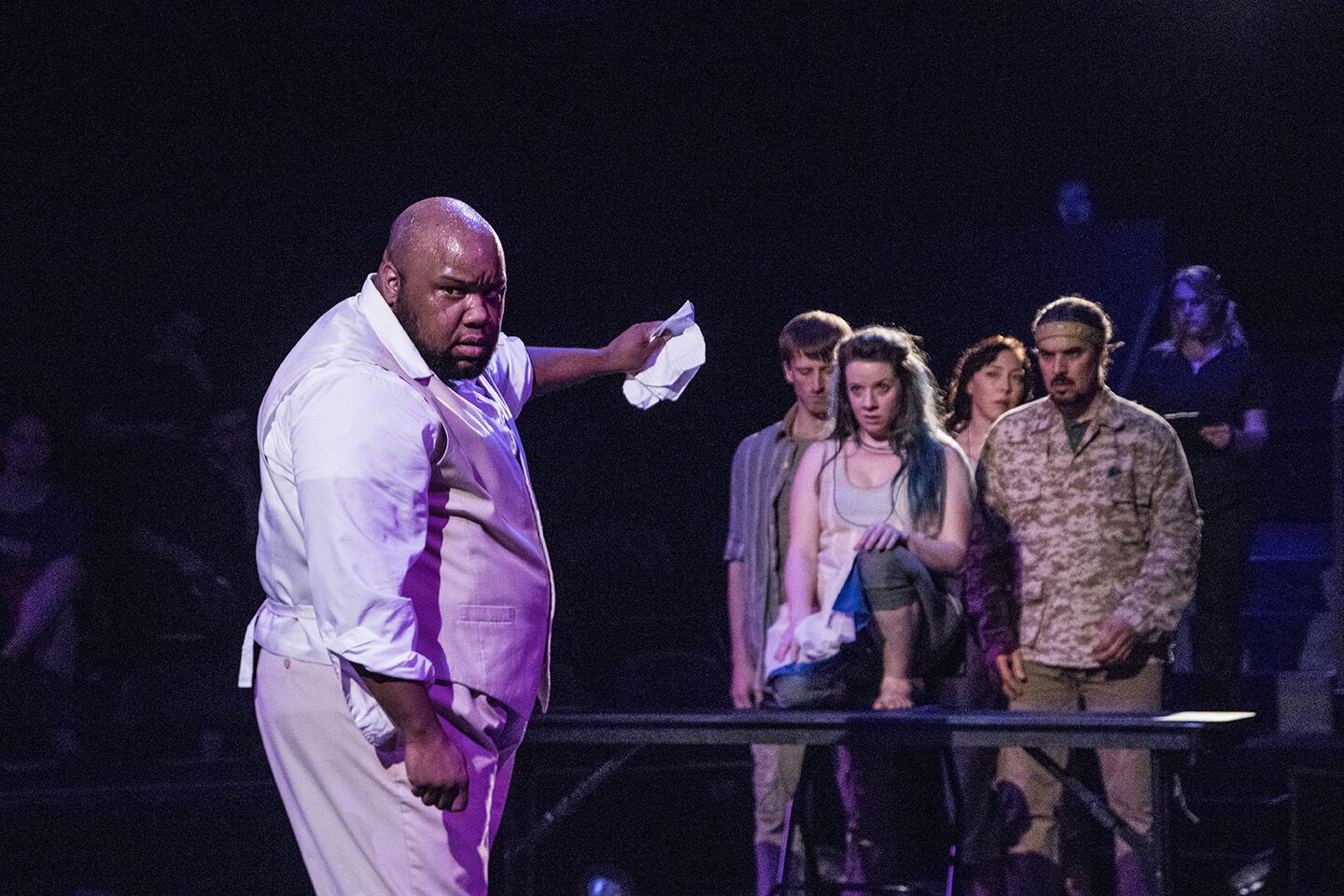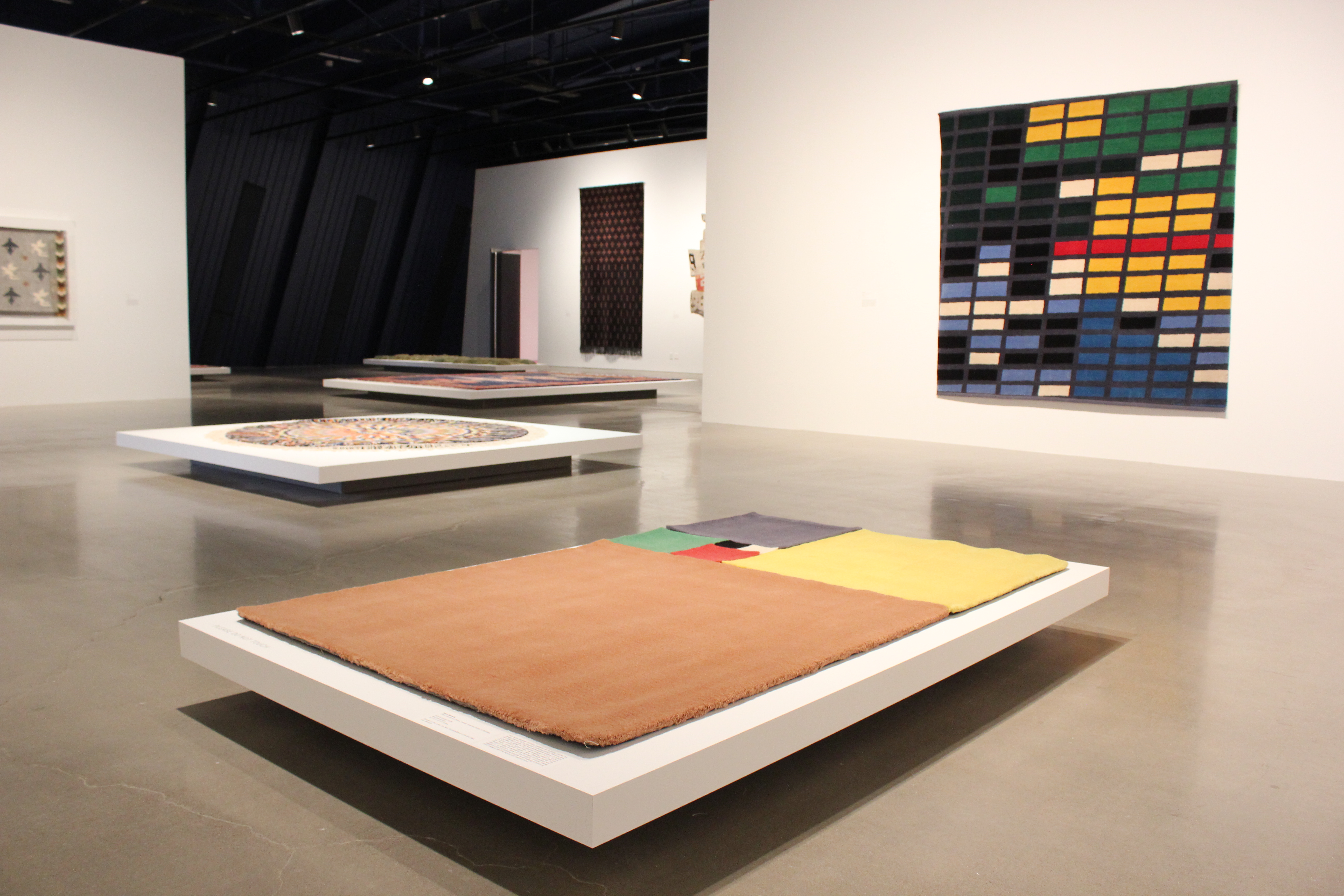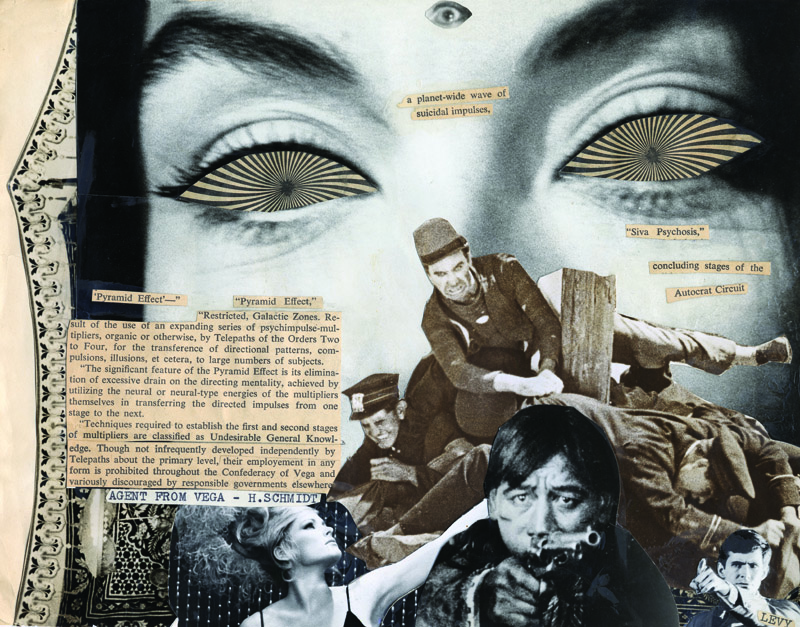Cleveland Play House’s ‘The Invisible Hand’ a hand-wringing geo-political drama
By Bob Abelman
Greed is at the core of Ayad Akhtar’s riveting drama “The Invisible Hand,” which received its off-Broadway premiere in 2014. Anguished introspection and no shortage of heated debate on the walk back to the parking garage is the result of Cleveland Play House’s production of it.
The play revolves around a kidnapped American investment banker, Nick Bright, who is being held hostage in a bleak Pakistan prison by Islamic revolutionaries. Citibank has failed to come up with his $10 million ransom and Nick’s only way out is to tap his skills and play the stock market to benefit his captors and their cause and earn his freedom. In short, Nick’s future is tied to Pakistani futures and the unstable buying power of the rupee.
Terrorism and totalitarian theocracy meet capitalism, leveraging and money laundering, all under Pirronne Yousefzadeh’s precise and gripping direction.
The title of the play is a reference to a term coined by 19th century economist-philosopher Adam Smith, who noted that, in a free market economy, the greater good of a nation is always driven by the self-interests – the “invisible hand” – of individuals.
But Akhtar did not earn his 2013 Pulitzer Prize on clever titles alone. This play’s dialogue is rich and seductive, even though it is infused with economic theory and geo-political presuppositions and occasionally burdened with having to explain them. And there is plenty of dramatic tension built into a plot set in the hotbed of dissonance that is Pakistan and layered with high-stakes online transactions and high-risk interpersonal interactions between extremely volatile personalities.
To add to the show’s driving intensity, the ending of each short scene is announced with a loud percussive blast and dramatic blackout courtesy of designers Daniel Perelstein and Michael Boll, respectively, and the lights come up in similar fashion.
When they do, they reveal a long, narrow brick and mortar prison cell designed with stark realism on a runway stage by Mikiko Suzuki MacAdams. A bed and inaccessible barred window are at one end, a bolted door is at the other, and audience stadium seating has been placed on both sides of the performance space. Those in attendance simultaneously watch the play and witness fellow audience members’ reactions to it in the distance.
The play’s ideologically opposite characters – flawed, complex and extremely well played – are prisoners of their own corrupt countries and at war with themselves.
Louis Sallan is mesmerizing as Bashir, the radicalized, idealistic and imposing Londoner who accidentally kidnapped Nick rather than Nick’s boss, and who is assigned by the Imam to assist with his prisoner’s day trading. With violence not far beneath the surface, Sallan’s Bashir makes it impossible for the audience to lower its guard, even when his character appears to do so.
The same can be said for J. Paul Nicholas as the spiritual but explosive Imam Saleem, who reluctantly buys into Nick’s proposition and is the play’s primary source of political and religious insight, commentary and irony.
Max Woertendyke’s Nick starts the play as a scared but cocky mid-ranking investment banker with strong survival instincts and, through some truly fine acting, devolves into a man broken and beaten by his circumstances.
His physical and emotional transformation is nearly as striking as Nik Sadhnani’s Dar, a gentle jailor pained by his primary task of chaining his captor during the first act but an obedient inflictor of pain by the play’s end.
Everyone on stage benefits from Valérie Thérése Bart’s costume design, which offers subtle insights into each character, such as Dar’s sweater vest worn over his linen Shalwaar Qameez, Bashir’s leather jacket and jeans, and Imam Saleen’s traditional garb and turban.
If this play occasionally loses the attention of theatergoers disinterested in geo-political drama and short-selling on the stock market, its brilliantly penned diatribes on these matters and the craftsmanship with which they are delivered will most certainly reel them back in.
“The Invisible Hand” at Cleveland Play House
WHERE: Outcalt Theatre, 1501 Euclid Ave., Cleveland
WHEN: Through March 11
TICKETS & INFO: $25 – $105, call 216-241-6000 or go to clevelandplayhouse.com
Bob Abelman covers professional theater and cultural arts for the Cleveland Jewish News. Follow Bob at Facebook.com/BobAbelman3. 2017 AP Ohio Media Editors best columnist.
Originally published in the Cleveland Jewish News on February 28, 2018.
Lead image: Max Woertendyke as Nick Bright. Photo / Roger Mastroianni











